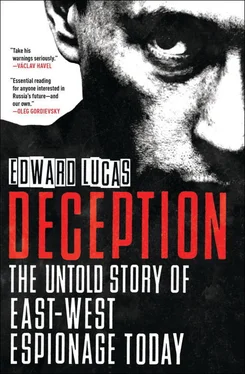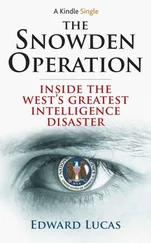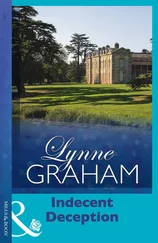p. cm.
Includes bibliographical references and index.
eISBN 978-0-8027-1305-6
1. Western countries—Foreign relations—Russia (Federation) 2. Russia (Federation)—Foreign relations—Western countries. 3. United States—Foreign relations—Russia (Federation) 4. Russia (Federation)—Foreign relations—United States. 5. Espionage, Russian—Western countries. 6. Espionage, Russian—United States. 7. Deception—Political aspects—Russia (Federation) I. Title.
D2025.5.R8L83 2012
327.12470182’1—dc23
2012005559
Visit Walker & Company’s website at www.walkerbooks.com
First U.S. edition 2012
aAn official of the pre-war royalist government, his side had lost out to the communists in the internecine strife in wartime Yugoslavia. There (as in much of Eastern Europe) the Second World War had been a fight between not two sides, but three. The Nazis had battled with communist partisans and the royalist Chetniks, who loathed each other as much as they hated the invaders. When the Germans lost, the communists (who had enjoyed strong backing from Britain and America as well as from the Soviet Union) won their civil war against the much weaker royalists, and labelled them as fascist collaborators.
bBased since 1995 in a green-glazed ziggurat on the southern bank of the Thames, the Secret Intelligence Service is informally called MI6; semi-official names include ‘the Friends’ or more formally ‘Other Whitehall Agencies’. Its employees usually refer to ‘the Office’; outside contacts may coyly call it ‘the Firm’.
cAn untranslatable Russian word derived from sila (force). It could be rendered as ‘men of power’ or more colloquially as ‘the hard men’. It chiefly refers to the veterans of the Soviet-era KGB and members of its successor organisations. But it also includes those with a background in the armed forces and in the quasimilitary Interior Ministry (MVD) as well as prosecutors and other agencies with the powers to snoop, bug and punish.
dIn inches she would be 35–24–35.
ePutin studied international law at Leningrad State University. He graduated in 1975 and joined the KGB immediately afterwards.
fUnfortunately the Russian word on the button means ‘overload’; the correct term for ‘reset’ would have been Perezagruzka .
gThe ‘West’ is a wobbly concept that defies precise description. It includes Anglosphere countries such as Australia and New Zealand (and in many cases Japan), which are not ‘western’ in any geographical sense. In this book I use it broadly to mean in economic and political terms the thirty-four member countries of the Paris-based Organisation for Economic Cooperation and Development, a rich-country club that promotes good governance. In a security context I use it to mean NATO and its allies, which would include, for these purposes, Sweden and Finland.
hAn arcane distinction is sometimes drawn between counter-espionage (active and offensive measures, such as distracting, impeding, expelling or recruiting the officers of a hostile foreign service) and counter-intelligence (more general preventative measures such as screening and surveillance, aimed at finding leaks and plugging them).
iAs well as highlighting the potential, some felt he was downplaying the dangers. A notable occasion was in early 2005 at the Davos World Economic Forum, when opinion was already turning sharply against the evident cronyism and incompetence of the Putin regime. Mr Browder was one of a handful of prominent Westerners to express a strong contrary opinion.
jRussia was chairing the G-8 (a group of countries that in those days tried to run the world economy). The original G-6, convened in 1975, comprised Britain, France, Germany, Italy, Japan and the United States and then added Canada as a member. As a sop to Mr Yeltsin, Russia was invited to join in 1997. Since 2009, the G-20, which includes the big emerging economies, has largely taken the G-8’s place.
kKameya also paid more than the combined taxes paid by the largest retbiler (XS, which paid $57m) and the largest dairy and juice company (Wimm Bill Dann, which paid $42m). Hermitage’s other companies paid a further $272m.
lThey were: Valery Kurochkin, a convicted thief, and Vyacheslav Khlebnckov, a convicted burglar. The three companies were called Instar, Logos Plus and Grand Active.
mThe 5.4bn roubles was paid out within two days via a newly created account at Universal Savings Bank. This was a curious institution. Two nominee shareholders in the bank were also shareholders in the three obscure companies that became the owners of the stolen Hermitage companies. The main beneficial shareholder is a convicted criminal called Dmitri Klyuev, who has past links to other questionable FSB-related transactions. In the summer of 2008, once Hermitage started firing its legal salvos, the bank filed for voluntary liquidation.
nThe federal authorities abolished this loophole in 2002. In 2006 they ended another quirk, a two-tier market in Gazprom shares. This had created a lucrative opportunity for investors (including Hermitage) to buy locally listed ones for foreign clients at a large and legal discount.
oA farcical but revealing element in this came with the discovery of ‘stolen’ documents brought from Russia to London and then sent back to Moscow from the DHL office in Lambeth, by two men of Slavic appearance (captured on CCTV), falsely giving the address of the Hermitage office in London. Barely forty-five minutes after the package was delivered to a law office in Moscow, the police arrived in search of the documents and confiscated the package, in what looks like a clumsy attempt to frame Mr Khairetdinov, another of the Hermitage lawyers. It is unclear what the package contained. A police protocol lists obviously forged documents, such as a power of attorney issued in the name of a non-existent person (using a surname that had featured in previous lawsuits against Hermitage), official files that would normally be in the custody of the authorities, and ‘documents in foreign language’ with ‘stamps of Belize’.
pMr Magnitsky’s lawyer, Dmitri Kharitonov, also says that on repeated occasions Silchenko offered to release him if he would incriminate Mr Browder.
qMostly from other bits of the former Soviet Union, they are habitually cheated, abused and on occasion murdered, by their employers, or by the police, or by thuggish political extremists.
r Ministerstvo Vnutrennykh Del (Ministry of Internal Affairs).
sHe also put Georgia in this category and said that Ukraine was heading there.
tMany worried that a supposedly defensive alliance was waging an aggressive war against a historic Russian ally. Yet NATO got involved only reluctantly and belatedly, after the multiple massacres in the preceding Bosnian war, and when Russian foot-dragging had stymied efforts to stop a Serbian attack on Kosovo.
uOf course Western intelligence collects information on Russia too. America’s National Security Agency gathers electronic data from antennae in north-eastern Poland, close to the Russian border.
Читать дальше












